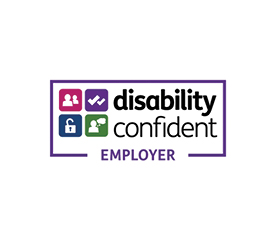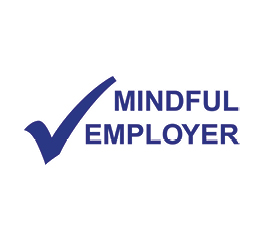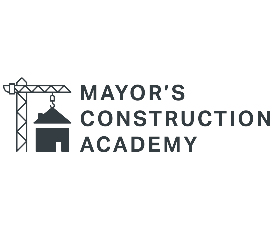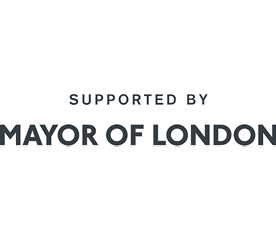In this section we endeavour to answer questions you may have about the College and all it has to offer. It includes links to a number of useful sources of information but if you prefer to speak to someone then please contact our Client Services Department on 0208 651 1131. You may also wish to browse this website where you can find further course information and news.
My son/daughter would like to go to University; can they study A-Levels at the College?
A-Levels are not the only route to University; many students prefer a more vocational route such as a Level 3 Extended Diploma or Technical Baccalaureate (TechBacc). Both offer UCAS points equivalent to 3 A-Levels or more. Don’t forget that we also offer Higher Education within Orbital South Colleges, based at East Surrey College, Redhill for those who prefer to study close to home, work in smaller classes and pay lower fees.
My son/daughter is really not sure what they want to study - can you help?
Yes we can! All our Client Advisors are trained in providing independent information, advice and guidance to help – not just when students apply to the College but as they progress through different courses and levels, advice is on hand. Contact Client Services for further information or call 0208 651 1131.
My son/daughter needs additional learning support
We can provide a range of support options to help all students achieve their potential. It is important that we know what needs a potential student has at their interview so support can be put in place. Contact Client Services for further information.
Will they need to re-take GCSE Maths or English?
Students will study English and Maths as part of their course if they do not already hold a GCSE grade 4 (C) or above in these subjects. This is a Government requirement. Students are encouraged to see the importance of improving their grades and how it can improve their earning potential in the future.
Is work experience part of the course?
All students aged 16-18 complete a work-related placement or project as part of their full-time study programme. This is just one way in which we help students develop employability skills, and helps ensure we have excellent progression to both work and higher level qualifications.
My son/daughter is studying for A-Levels but thinks he/she has made a mistake and would like to do a more practical course – can they apply at 17?
Sadly, we have seen an increase in the numbers of applications from students who felt pressurised to do A-Levels and then regretted it. They can certainly apply but depending on the course they choose there is a risk they may have to pay fees when they reach 19. Many students progress to University from the College each year on completion of BTEC and other Extended Diploma qualifications.
How do you keep parents/carers informed of student progress?
We hold an initial Parents/Carers Evening ‘Meet and Greet’ in September, as well as two Parents/Carers Evenings during the year. As well as this, written reports and other information about the progress of students are sent to parents and carers throughout the academic year.
Can my son/daughter do an Apprenticeship at 16?
Yes, they can but depending on which area they are interested in, we have found that many young people benefit from completing a study programme before progressing to an Apprenticeship. Advice is available on Apprenticeships from our Employer Services Team on 0208 651 1131 or by email JRCApprenticeships@johnruskin.ac.uk.
Why Apprenticeships?
Apprenticeships are a great way to improve the productivity, loyalty and quality of a workforce through on-the-job training and learning, designed specifically around the occupational needs of your business. Apprenticeships are a cost effective way to deliver skills for new employees and experienced staff. As a result, Apprentices are eager, motivated, flexible and loyal to the company that invests in them.
What is an Apprenticeship?
An Apprenticeship is a way of earning whilst you are learning. Apprenticeships develop practical and theoretical skills designed to help employees reach a high level of competency and performance. By the end of the Apprenticeship they should be able to demonstrate that supervision is no longer needed and they are able to complete all parts of the job unaided. The new Apprenticeship standards will require the Apprentice to carry out an end point assessment which is assessed by an independent organisation.
How long does an Apprenticeship last?
The duration of an Apprenticeship depends on the framework/standard being followed and the ability of the individual apprentice. An Apprenticeship can take between one and four years to complete depending on the level of Apprenticeship, the Apprentice’s ability and the industry sector. As a guide, an Intermediate Level 2 Apprenticeship usually takes around 12 to 18 months and an Advanced Level 3 or Higher Apprenticeship Level 4 around 24 months.
Levy Employer – Who Pays?
Once the Apprenticeship training you’ve agreed on and purchased has started, monthly payments will be taken from your service account and sent to the training provider.
You will see funds entering your account each month after you have declared the levy to HMRC. Funds will leave the account each month as you pay for training.
Your levy allocation is limited each year. If it is exceeded it will then be deemed to be co-investment.
With ‘co-investment’, you will pay 10% of the outstanding balance for that month, and the government will pay the remaining 90% up to the funding band maximum.
Government Publication > Apprenticeship funding: how it works
What are the different types of Apprenticeships?
Apprenticeships are increasingly recognised as the gold standard for work-based training. There are now over 350 new Apprenticeship Standards with more being added each month. Around 500,000 people start Apprenticeship every year.
These are the following levels:
- Intermediate Level 2 Apprenticeships – Designed to build and consolidate knowledge and competence of operational roles within an industry. They are designed specifically with the employer in mind, making it easy to re-skill and up-skill an existing workforce as well as create new Apprenticeship roles. An Intermediate Apprenticeship is equivalent to five good GCSE passes.
- Advanced Level 3 Apprenticeships – Ideal for advanced practitioners and considered a technical role in many industries. They cover all aspects of learning designed to support career progression and preparation for managerial development. An Advanced Apprenticeship is equivalent to two A-level passes.
- Higher Level 4 & 5, and Degree Level 6 & 7 Apprenticeships are a work-based route into Higher Education. These are increasing in availability and popularity with learners and employers, as an alternative to attending University.
Who are Apprenticeships for?
Apprenticeships are for new and existing staff. They are open to anyone over the age of 16 years old who is not in full-time education. An Employer incentive is available between the ages of 16-18.
How is training delivered?
A programme of activity is developed between the Training Provider and The Employer. This is called ‘off the job’ training and can be formal training such as studying at college, shadowing a colleague or being mentored at work.
What about wages?
All Apprentices are employed, and have a contract of employment. Ideally, a salary should be offered that reflects the job role and the skills and experience of the candidate, whilst recognising the training opportunity being offered. The minimum wage for Apprentices is £3.70 an hour but Employers are encouraged to pay more. Employment must be for at least 30 hours per week.
What is involved in 20% off the job training?
The 20% threshold is the minimum amount of time that should be spent doing off-the-job training during an Apprenticeship and this applies to both Apprenticeship frameworks and Apprenticeship standards. All Apprenticeship standards have been developed under the guidance that they are sufficiently stretching to require at least a year of employment, with off-the-job training accounting for at least 20% of the Apprentice’s employed time. This requirement applies to Apprenticeships at all levels.
There is further guidance available on what is acceptable for the 20% and how and when evidence can be collected at “Apprenticeship off-the-job training Policy background and examples”.
Are English and Maths essential Entry Requirements for starting an Apprenticeship?
This will depend on the Apprenticeship you are applying for. Typically, the employer will set the entry criteria they are looking for which is likely to include a minimum level of Maths and English. There are certain criteria for Level 2 Apprenticeships that supports young people who have an Educational and Health care plan.
Address: John Ruskin College, Selsdon Park Road, South Croydon, CR2 8JJ
Phone: 020 8651 1131 / Email: info@johnruskin.ac.uk





